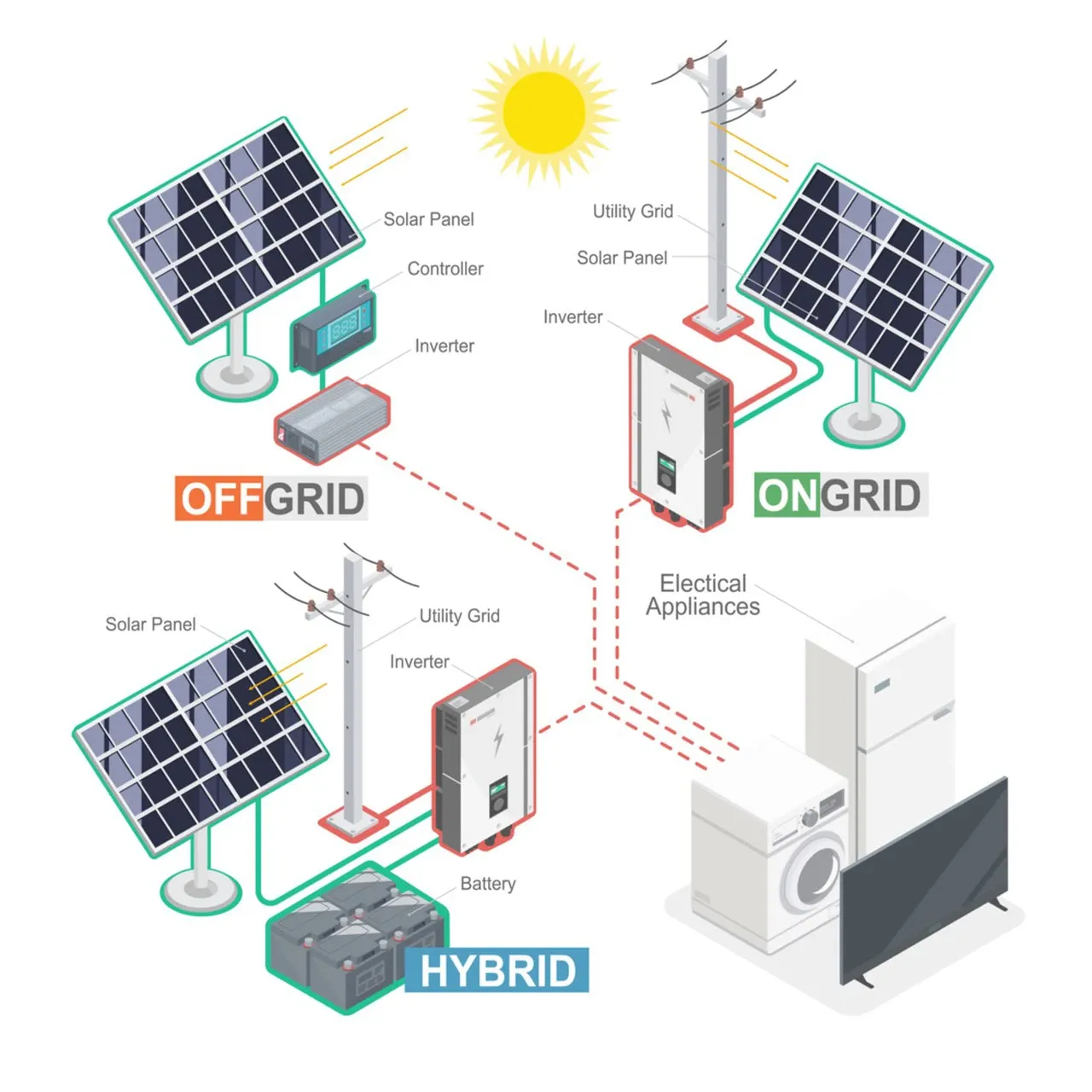2025-10-27
Uncovering the ideal hybrid power solution is like navigating through a maze—are you doing solar + battery, wind + generator, or a complete hybrid power system with grid-tie and storage? This guide boils it all down to the simple stuff, so you can figure out what hybrid power system will work best for your home, business, or remote site.

A hybrid power system combines two or more power generation or storage sources—i.e., solar panels, wind turbines, batteries, diesel generators, or the grid.
Simple definition
This translates into greater reliability and flexibility compared to single-source systems.
Question: Why not just choose a normal solar or generator system instead of a hybrid?
Excellent question. Because a hybrid power solution offers:
Research conducted by the National Renewable Energy Laboratory (NREL) confirms hybrid renewable + storage systems as grid-futures solutions.
Below is an overview of standard configurations:
| Hybrid Type | Primary Components | Typical Use Cases |
| Solar PV + Battery Storage | Solar panels + lithium or lead batteries | Residences, small business, off-grid cabins |
| Wind + Solar + Storage | Wind turbine + solar + batteries | Off-grid sites, farms, distant villages |
| Diesel Generator + Renewables | Diesel genset + solar/wind + storage | Remote telecoms, mining camps |
| Grid-Coupled Hybrid System | Grid connection + solar + storage | Commercial buildings, island micro‐grids |
Set average daily energy requirement (kWh).
Identify peak load periods and backup needs.
For example, an Istanbul cafe installed a solar-battery hybrid and reduced diesel backup by 80% following load mapping.
If solar resource is high in your location, solar + battery is best.
Wind-dominated regions may prefer wind + battery.
Remote sites may require hybrid with diesel standby.
Consider:
Battery type (LiFePO₄ vs lead-acid)
Inverter/charger compatibility
Control system/EMS (Energy Management System)
Cost of initial outlay vs long-term saving
Incentives or subsidies locally
For example, in distant South Africa, hybrid systems of solar + storage supported rural electrification.
Who is going to maintain the system?
Are local resources available?
Is the hybrid solution modular (easy to expand)?
At the regional level, grid-connected hybrids can encounter licensing or interconnection requirements.
One Crete boutique resort utilized a hybrid power solution composed of 200 kW solar, 100 kW wind, and 300 kWh battery storage. It lowered summer diesel consumption by 90% and had payback in 6 years. With the proper hybrid power solution on its land, the resort improved reliability and reduced carbon emissions.
Q: Is a hybrid power system only for off-grid locations?
No — many grid-tied houses use hybrid systems with battery storage to handle peak tariffs or as an emergency supply in case of power failure.
Q: Will a hybrid power solution always cost more?
Initially yes, but in the long run savings on reduced fuel/diesel usage and lower tariffs balance out the cost. The key is to get the sizing right for your application.
Q: How easy is it to add later to a hybrid power system?
Today's hybrid systems are scalable. You start with solar + small battery and can add wind or a large battery when the demand picks up.
Your choice of ideal hybrid power system is all about finding just the right balance of your load profile, site conditions, price, and expanding in the future. With an optimal hybrid power solution, you'll be ready for both hassle-free operation and renewable energy.